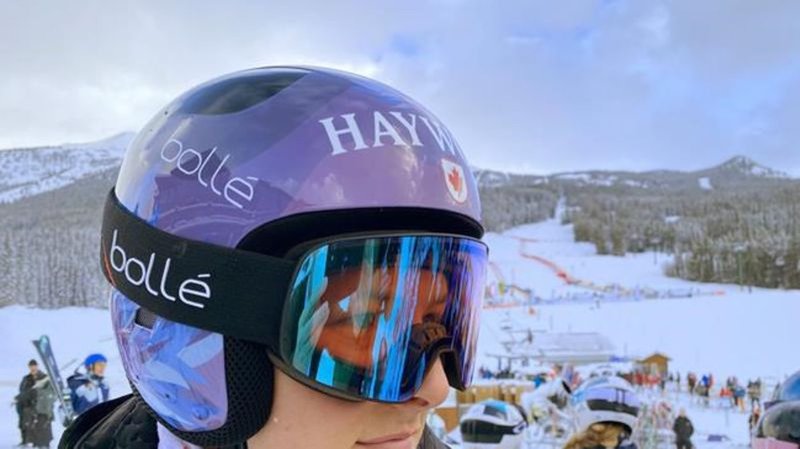
Racing helmet labour of love for Canadian ski racer Brodie Seger
LAKE LOUISE, Alta. — Brodie Seger had to wait another day to debut a race helmet that means a lot to him.
Friday’s cancellation of the first of two World Cup men’s downhills in Lake Louise, Alta., because of too much snow reduced the host Canadian team’s chances to race at home a year after the entire event was wiped out due to COVID-19.
Seger will have another chance to race in his new purple-and-blue beflowered helmet in Saturday’s downhill.
He’s on the start list along with Broderick Thompson of Whistler, B.C., Toronto’s Jack Crawford, Jeffrey Read of Canmore, Alta., Cameron Alexander of North Vancouver, B.C., and Ben Thomsen of Invermere, B.C.


